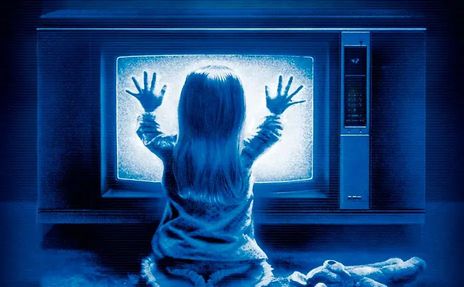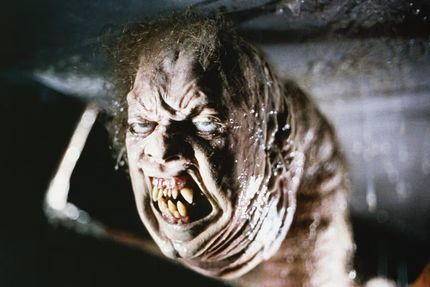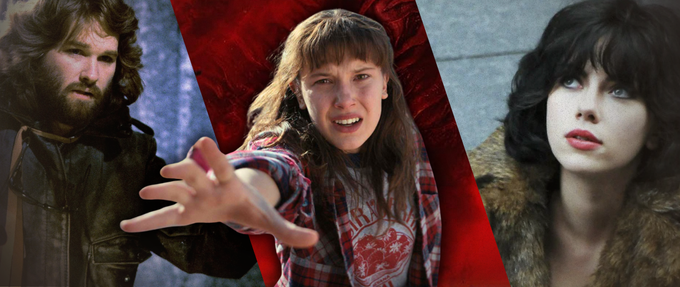After three years since the last season, and nine years since it premiered, Netflix's mega-hit sci-fi series Stranger Things is coming to an end this winter. The blend of small-town horror, psychological terror, sci-fi, and teen drama proved to be a surprise success for the streaming service.
Since its premier, Stranger Things has become one of the most-watched shows of its generation, a multi-award-winning juggernaut that has birthed the careers of a whole new generation of stars. It's also inspired an animated spin-off, a Broadway show, a slew of tie-in books and comics, a board game, and, yes, a range of snacks.
Netflix is pulling out all the stops for this climactic season, which will be split into three parts, with each episode running as long as the average movie. This is reported to be one of the most expensive seasons of television ever made. Will it live up to audiences’ sky-high expectations? Well, we’ll just have to wait and see…
Stranger Things wore its myriad inspirations proudly on its sleeve. It’s an unabashedly nostalgic series that paid homage to the greats of sci-fi, fantasy, and horror. If you were a child of the ‘80s, then you probably recognized most of the big influences. We could be here for thousands of words listing every single one, and we’d probably still miss a few.
The Duffer brothers have cited everyone and everything from H.P. Lovecraft to David Lynch to Ghostbusters as foundational texts in their own show. So, we’ve decided to focus on some of the most impactful influences on Stranger Things, the ones that, if they didn’t exist, would render the entire series non-existent.
IT by Stephen King
The king of horror fiction’s DNA is all over Stranger Things, right down to the font of its logo being inspired by his novels. We’d be here all day going through every King reference, whether it’s the Duffer Brothers using images from Firestarter as part of their initial pitch, to the focus on young people confronting evil as seen in Stand By Me, to the presence of a malevolent force in a seemingly normal town, a King standard in many of his books.
But if any single King title is dominant in Stranger Things, then it’s the nightmare-inducing doorstop It. Standing at over 1000 pages long (depending on your edition), It is legendary for its petrifying clown demon Pennywise, but its true terror lies in its uncanny portrayal of small-town darkness.
The Losers Club, an obvious inspiration for the kids of Stranger Things, is forced to confront an all-encompassing evil that the adults ignore or use as an opportunity to scapegoat outsiders. They bond over their shared trauma and determination, and become the ultimate underdogs in the process. Stranger Things may not have a dancing clown who climbs out of photographs, but it would not exist without King’s deep dive into the rot of Derry.
Akira by Katsuhiro Otomo
It’s tough to make a show about a telekinetic child and the government forces trying to keep them under control without referencing perhaps the most legendary anime movie of all time. Akira, adapted from Katsuhiro Otomo’s then-unfinished magnum opus, is iconic for a reason. Its hyper-detailed animation deftly portrays a near-future Neo-Tokyo where teen gangs run riot on the streets, and a mysterious group wields the terrifying power of psychic kids. Eleven’s torment is very similar to that of Tetsuo, the bitter biker kid whose own powers soon grow out of control. Will Stranger Things have an ending as explosive as that of Akira?
Poltergeist (directed by Tobe Hooper)

For many a child of the '80s, Tobe Hooper's Poltergeist was a touchstone of their youthful fears. Produced by Steven Spielberg, the film was conceived as a horror sequel to his 1977 sci-fi Close Encounters of the Third Kind. He landed the directorial reins over to the man who gave the world The Texas Chainsaw Massacre. The final result was the eighth-highest-grossing film of 1982 and one of the scariest movies of the decade.
A perfectly normal family moves into a seemingly idyllic community in California. Soon, things start to get weird. Furniture moves around on its own. There are voices coming from the TV. Then there's a portal to another dimension inside the closet. Expect creepy clown dolls, psychic, haunted kids, and the nightmare of living on top of a former graveyard.
E.T. The Extra-Terrestrial (directed by Steven Spielberg)
As much as Stephen King is a core influence on Stranger Things, the show also wouldn’t exist without the works of Steven Spielberg. The pitch described the show as "a love letter to the golden age of Steven Spielberg." There may be no living mainstream American director more impactful to modern pop culture than the guy who gave us Jaws and Indiana Jones.
Indeed, Jaws is a particular blueprint for the series, paying homage to the film’s original setting in Montauk. But the big shadow looming overhead of Stranger Things, right in front of the moon, is E.T.
The 1982 sci-fi was another film used to pitch the series and show the style and tone they hoped to evoke. Any time you see Eleven and her friends on their bikes, you cannot help but think of Elliot, E.T., and his friends flying into the night sky on theirs. It’s another story of young people taking on a crooked system to fight for their friend's safety. Spielberg’s blend of nostalgia, childhood discovery, and adventure made a big impact on the Duffers.
The Thing (directed by John Carpenter)

You can’t talk about or evoke ‘80s horror without the one and only John Carpenter. The man who gave the world Halloween spent the decade making some of the most iconic horrors of the medium, and almost all of them left their fingerprints on Stranger Things: The Fog, Christine, Big Trouble in Little China, They Live, and, of course, The Thing.
Remaking and greatly improving upon a film from 1951, Carpenter's Antarctica-set horror features scares of the most legendary scares in cinema, as well as practical effects that continue to repulse and amaze. Check out the synth-heavy score for another Carpenter inspiration (the director famously did all his own music in his movies).
Altered States (directed by Ken Russell)
For the experiments in Hawkins Lab, the Duffer brothers drew inspiration from an underseen and extremely odd sci-fi horror film, Altered States. Written by Paddy Chayefsky and directed by the surrealist and oft-controversial auteur Ken Russell, this psychological sci-fi horror is, to put it mildly, trippy.
William Hurt stars as a psychopathologist who begins experimenting with sensory deprivation and psychoactive drugs. The end result is a retina-burning nightmare with body horror elements that looks and sounds unlike any sci-fi of its era.
Under the Skin (directed by Jonathan Glazer)
In their portrayal of the Void, the bleak space where Eleven's mind goes to while in sensory deprivation, Stranger Things took inspiration from one of the most unusual and disturbing sci-fi films of the 2010s. Directed by Jonathan Glazer and loosely adapted from a novel by Michel Faber, Under the Skin follows a mysterious woman, played by Scarlett Johansson, as she travels across Scotland picking up men.
The woman is an alien who ensnares humans and has them devoured by an unexplained force. The scenes where the men sink into this strange liquid abyss are directly homage by the Void (albeit with less human harvesting by aliens!)
Elfen Lied
In an interview with The Daily Beast, the Duffer brothers cited the anime series Elfen Lied as a key inspiration for Eleven. Released in 2004, this series looks innocent enough from the outset but quickly reveals itself to be an ultraviolent tale of revenge, prejudice, and transgressions that made it controversial to this day.
Elfen Lied revolves around the battle between human beings and the Diclonii, a mutant species similar to humanity but with horns on their heads and telekinetic powers that can wreak havoc. Lucy is a Diclonius who has escaped a prison-like facility and is taken in by Kouta and his cousin Yuka. As wave after wave of soldiers are sent to capture her, the bloodshed grows, and tensions between the species get worse.
Featured image: Sunset Boulevard, Netflix, StudioCanal

